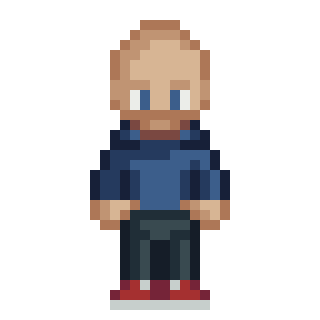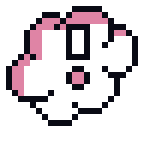Hello
 My name is Torsten Mangner. I am a software developer and quality expert.
My name is Torsten Mangner. I am a software developer and quality expert.
I am very interested in getting to know you and your project. Maybe there is a chance that I can support you. If you are also interested in a collaboration or want to know more about me and my recent work, feel free to contact me
Who am I?

I like to call myself a generalist and was able to gain experience in software development over the last 20 years. Since I am used to switching roles between developer, tester, and coach, I tend to rapidly become a real enrichment for every cross-functional team (see testimonials).
As an experienced software developer with a strong focus on quality, I aim for sharing my knowledge and experiences with my team’s colleagues. I do that by setting a good example and showing during my daily work how to:
- write clean, readable and comprehensible (and therefore maintainable) code
- write the correct tests, so that they guide and help you, instead of hinder you
- learn and internalize the critical thinking of a tester
- use Continuous Delivery to improve quality and reduce risk
- use a minimum of documentation to help everyone on the team
For a couple of years I feel like a part of the functional programming community, but also had the chance to gain a lot of experience with “classical” paradigms. As a polyglot developer, I look into new languages and concepts every now and then and try to recognize and leverage their unique strengths. I have written production code in TypeScript, Go, Clojure and Ruby, just to name the most recent used languages.
Whenever I am in a project for a longer time, I tend to establish communities of practice (e.g. software craft, testing) with colleagues of mine, to encourage knowledge exchange between different teams or even companies. Additionally, I regularly visit meetups and conferences (both as a speaker and an attendee) to see further than the end of my own nose.
To be able to successfully bring our ideas of modern software development into the world, I founded a company named inoxio Quality Services GmbH together with two friends in 2007. Since then countless projects all over Germany and Europe utilized our know-how in the fields of development, testing, and operations.
What have I done?

- For a gaming start-up in the UK, I lead the backend development team and
designed, implemented and maintained a Event-driven microservice
architecture that served as a backend for an upcoming high-volume mobile
game.
TypeScript, Go, MongoDB, Kafka - I led the backend development team, which provided the logic and the content
for the different game clients via a GraphQL API.
Additionally we built several tools to administrate and manage the content of
the game.
TypeScript, Ruby on Rails, Clojure, Go, GraphQL - We migrated a legacy REST API to a new GraphQL API, extracting small
services from the monolith where useful. All while keeping the service
continuously available to our user base.
TypeScript, Ruby on Rails, Clojure, Go, GraphQL, AWS, Terraform - For a big German eCommerce platform, my team and I built a recommendation
solution with a polyglot microservice architecture. And as good DevOps,
we ran the operation ourselves.
50+ Services, Clojure, Scala, Python, Kafka, Tensorflow, Redis, REST - The whole microservice landscape was migrated from a company-owned
data center into Amazon’s Cloud with zero downtime.
AWS, Terraform - For our own company, I planned and developed a tailored invoice and
accounting system, which is used successfully for over 10 years and is
enhanced and improved every now and then.
Ruby on Rails, HTML, SCSS, Javascript, Docker, AWS - Since in complex systems insufficient transparency is often jointly responsible
for poor quality, I established holistic monitoring and alerting solutions
for different projects.
TypeScript, Go, Clojure, ClojureScript, Prometheus, Grafana, OpenTelemetry - Software, that isn’t maintained, rots away quickly. I have always a special interest to improve the code quality of the software I am working on as a daily routine. At the end of the day, I want to have less technical debt, better test coverage or less accidental complexity in the system.
If you need a traditional CV with a list of all my skills, known languages or tools and all projects that I worked on, you can find that here: Profile Torsten Mangner.
What do I believe?

In case that your beliefs do not match mine, we should definitely have a word. I would love to hear which principles are making your projects successful.
There is no silver bullet
There are no best practices. No single technology can be the answer to an existing problem. Each challenge has to be seen in the context of the current circumstances.
Delivering Value
The goal is not doing 30 sprints straight, or to poker with story points, or to measure the team’s performance with artificial metrics. While those things can be a means to an end they should never distract from the original goal.
In the end we want to deliver value for our stakeholders (and by implication for our customers). And we do this quickly, reliably and with consistently high quality.
Continuous Improvement

Only if a team wants to improve itself every single day, it can achieve great things. Retrospectives with their blameless causal investigation are cornerstones for the continuous improvement of a team. Small experiments with measurable results help to adapt the team’s structure and mode of operation to its current needs.
Quality
You don’t need testers to ensure quality. Every team member can learn and internalize the critical thinking of a tester and so influence the quality of the product right from the start. You may need quality advocates to accompany and guide the team in this process.
Transparency
Believing is not knowing. Only with correctly measured data, one can make informed decisions. Everything else is guessing. The transparency of a product can be improved with a comprehensive monitoring solution.
In the same way can tests, with their ability to verify and document essential aspects, deliver a clearer picture of internal processes of a system.
Test pyramid
Too many tests on the wrong level of the test pyramid make your tests slow, unstable, unnecessarily complicated, and hard to maintain. In the same time, you lose the biggest advantage of a good test suite: your ability to make changes with confidence.
A nicely balanced test pyramid, on the other hand, gives you fast feedback, shows which change led to unwanted side effects and verifies both the correctness of single components and their proper interaction.
What are former colleagues saying?

Clemens Mitterwallner Head of Engineering @ Drest LtdTorsten is a truly exceptional engineer who consistently exceeded expectations. His ability to excel in every aspect of his role, from system architecture to hands-on development, is truly remarkable.
Torsten’s deep technical expertise combined with his strong leadership skills made him an invaluable asset to our team. He was always willing to go the extra mile and his dedication to mentoring and guiding other engineers was inspiring. His positive attitude and collaborative approach made him a beloved colleague, and he is widely respected throughout the company.
I wholeheartedly recommend Torsten for any role that requires a talented, dedicated, and inspiring engineer. He is a true asset to any team.
Lisa Bridgett CEO @ Drest LtdTorsten is a rare person and colleague - one of those persons that makes one believe in humanity, leadership, intelligence and humility.
His intelligence, leadership and clarity of person and thought is extraordinary.
First regarding his work competence and productivity - Torsten drove the development of two backend architectures for our high resolution visual game. Alongside this he built a team that constantly upped their game, remained constant and stable, understood the strategy and complexities, and developed as engineers, leaders and most importantly humans.
He asks question over question in order to understand. He is not afraid to stand up to prevailing thinking or dogma in order to challenge the status quo on a technical decision. He does this with grace and carefulness. I don’t think I have met anyone who is so clear in conveying their point of view, and yet so delicate and strong in delivering the verdict.
Regarding his leadership - Torsten gets real benefit and flow in teaching and developing engineers, yet never wants the accolades or title that accompany this. He is a true believer in servant leadership, seeing his role as one that serves others and achieving honest gratification in leaving his team members stronger and more confident in every way.
I have the highest confidence in recommending this extraordinary mind and leader to future work collaborations. Any business is very very lucky to have him.
Oliver Mooney Principal Developer @ Drest LtdTorsten is easily one of the best developers I’ve worked with in my 20-year programming career.
In addition to all the usual strengths of a seasoned developer, he possesses two key skills: the ability and dedication to deliver transparent, maintainable solutions to complex requirements, and a willingness to mentor other developers to help them understand and develop those solutions further.
It’s been eye-opening for me to see how his values of communication and mentoring help build extremely effective teams. He is universally lauded by my colleagues and with good reason: he’s made every one of us better developers.
John Yorke Tech Lead @ Drest LtdI was lucky enough to have worked with Torsten for nearly 2 years. Throughout that time Torsten always impressed me with his attitude, his kindness and his intelligence. A true engineer that you can share a beer with.
Carl Düvel Freelance Senior Software EngineerTorsten ist nicht nur ein Qualitätsexperte mit einem fast schon unheimlichen Gespür für Bugs und ein erfahrener Entwickler, sondern kennt sich auch noch mit UX aus.
Eine IT-Allzweckwaffe also. Das meint er mit “recht erfahren” 😏.
Hire him & thank me later.
Christoph Burgmer Tech Lead @ ThoughtworksTorsten ist in meiner persönlichen Top 10 Liste der Leute mit denen ich Software entwickeln will.
Und er versteht auch noch was von Fussball!
Christian Stamm Tech Lead and Principal Developer @ OTTOOur fabulous DevQaOps and creator of beautiful things
Richard Filippi Tech Lead @ ThoughtworksTorsten is an extremely lovely person that I had the pleasure of working with in Hamburg.
If you need a top dev talent he’s your man, and he’s also reasonably proficient at FIFA on the Playstation. Given the chance I would love to work with him again.
Contact me





